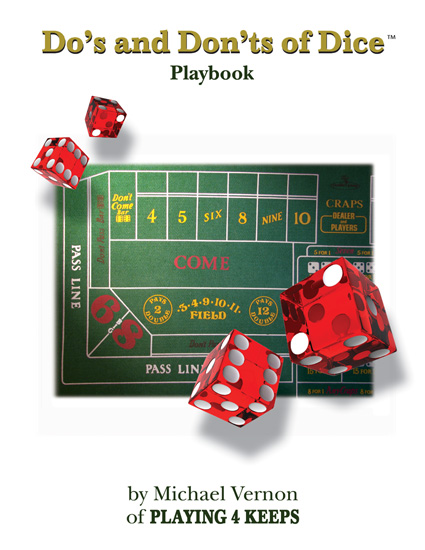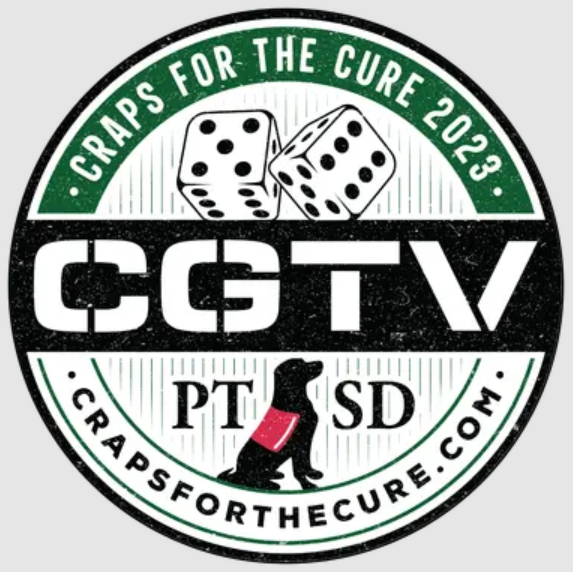|
|
 |
|
|
 |
|
|
 |
 |
|
Playing With The Cause
When dealing with difficult, real time playing decisions
at the table, most players who have worked and or played
the game along side me will often hear me state: "Hey,
If you don't like the direction you're going in, then
change the direction you are going in."
How many point and seven outs do you need before you
decide to change your approach? How many craps numbers
will you continue to toss using a hard-way set, all the
while betting the inside box numbers, before deciding to
change something in your set, grip or throw?
When it comes to shooting the dice, it is no secret that
I like to utilize a three finger front grip with a
hard-ten dice set. With this set I can determine how my
dice will react as a result of my delivery. I use the
come out roll with this set as a gauge of future
results, because my winning potential is based on my
consistency at the tables. Am I consistently throwing
box numbers? Or do I need to "tweek" my set or grip for
better results?
If I toss a two or a twelve with this hard-ten set on
the come out, I know that I have to change whatever it
is that mechanically caused that result. I might focus
on keeping my delivery parallel to the table surface and
check my follow through on the next toss.
Or, I might experience a 5/2 seven on the come out with
my hard-way set, which on the come out is profitable and
yet not necessarily the result I was anticipating. This
type of seven result was caused by my grip and I have to
make sure my release allows the dice to roll off my
fingers with equal symmetry on the next toss, focusing
on what I did mechanically to cause that seven result.
If I didn't take the time to do this, I know with
certainty that I would not get very far in the game. I
like to look at the mechanical part of my game from a
purely "cause and effect" point of view. While I am
shooting, if I don't like the result I am getting from
my toss then I simply have to change some aspect of my
toss.
Again, "If you don't like the direction you're going in,
then change the direction you are going in."
For the dice-influencing player who wishes to change the
results of their game into a positive experience, it is
essential to pin point and change what ever is causing
the undesired results. Focus on the mechanics of the
throw during the game and not on the results. As a
player, start pinpointing what you do want to achieve
with your toss. Work with what you know will net that
desired point and concentrate on achieving it.
I see too many players reacting and getting caught up in
the "effect" part of their game and they limit
themselves to focusing on the wrong part of the game.
Effects, - such as seven outs, lost chips, dice bounced
off the table, craps numbers instead of box numbers
being rolled, - are all effects that we, as the
shooters, cause with our various mechanics. These
effects happen, we have caused it, and we can fix it.
This is where our true dice-influence lies. We have to
focus on what we can do to cause a desired number to
appear.
If my financial results are less then desirable, I
simply focus on what caused those results and work
toward making changes to my game that will net me a
different and positive result.
If you still seem to be getting a result in the game
that is unfavorable to your style of play, then it is up
to you to decide how long you wish to continue to
experience those effects before you decide to switch to
another game, table or venue.
The game has so many levels and dimensions that are
being influenced by us as players. It is easy to see how
players, steeped in the game, can lose sight of how they
cause their gaming results to vary.
Until next time, focus on visualizing future results -
not past effects.
Soft Touch
|
 |
 |
 |
 |
|
 |
 |
Sports do not build character. They reveal it. - Heywood Hale Brolin - |
 |
|
|











